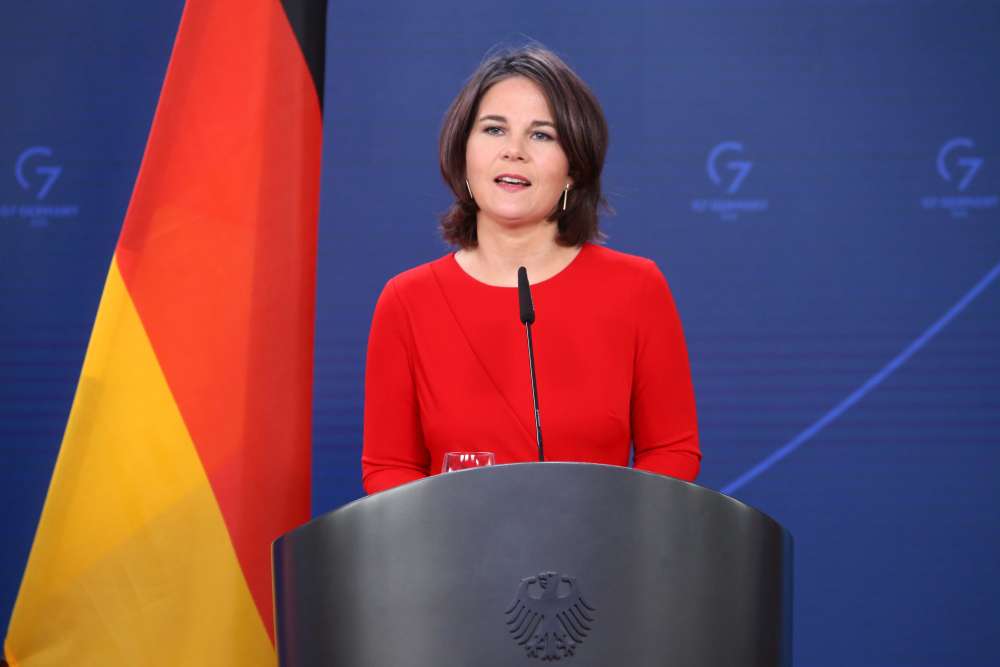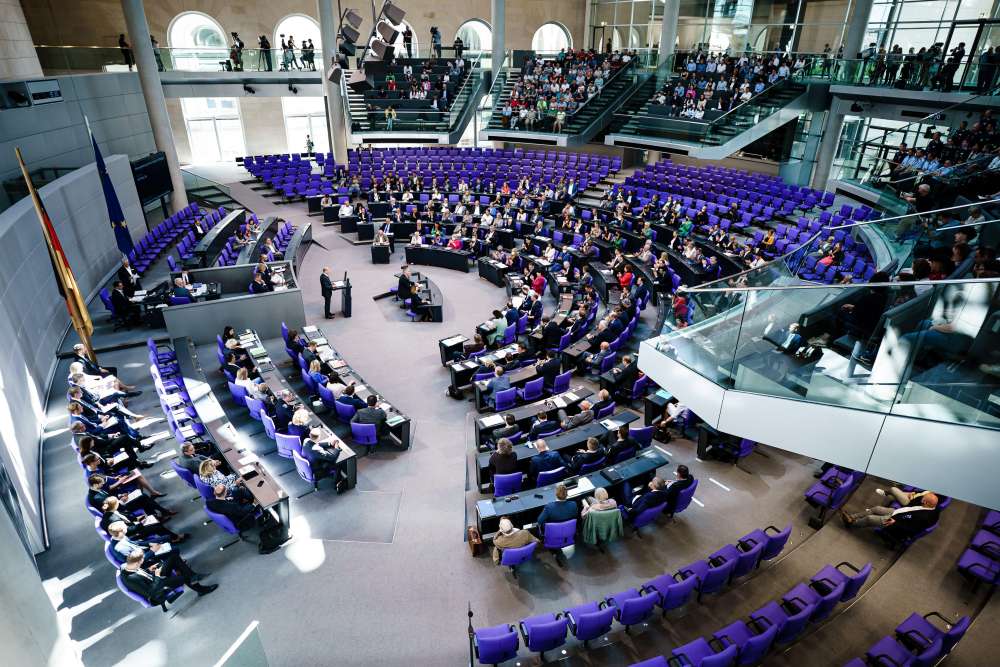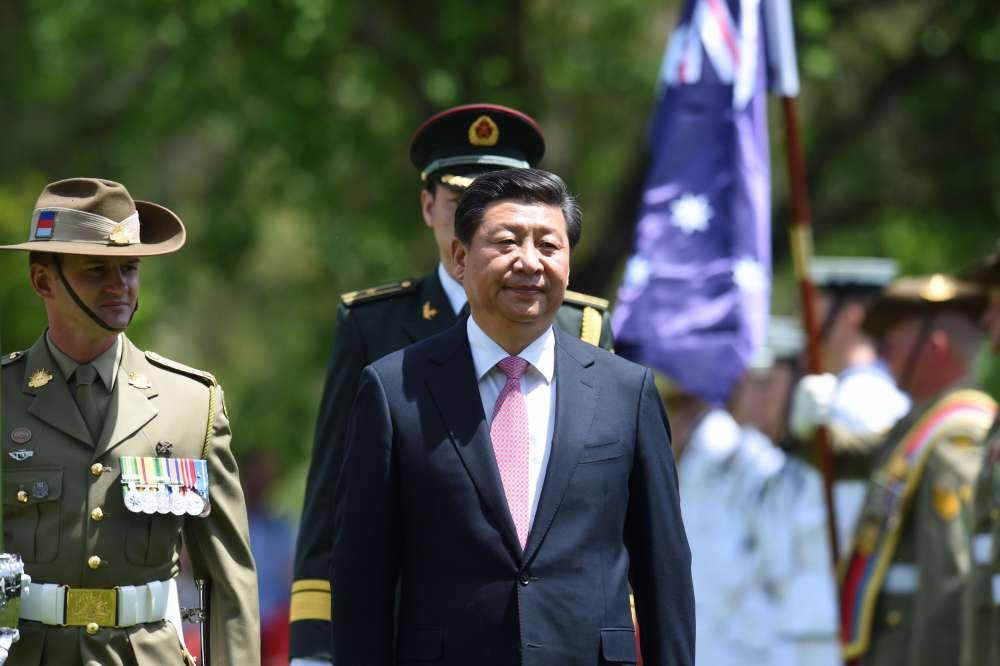Living in Security

Photo: MIKA SAVOLAINEN/POOL/EPA-EFE/Shutterstock
How can the German government guarantee the security of the people in our country? 49security invites German and international experts to discuss this question. Because: We have to shape our national security strategy together.
Our world changed on 24 February. We are witnessing Russia’s brutal invasion of a country in our immediate neighbourhood. We are seeing the images of bombed out cities in Ukraine every day. The war has already killed tens of thousands of people – and has forced millions of Ukrainians from their homes. This war has dealt a severe blow to our European security architecture established post-1989.
Now, at the latest, it’s clear that the fact that we live in security in Germany isn’t something to be taken for granted.
Security policy has never been something only discussed in think tanks and among politicians. However, this debate has now reached the heart of our society to a greater degree than in the past. Members of the public in Germany are worried about how long the war in our immediate neighbourhood will go on for. And our children are asking us what nuclear weapons are.
But we’re living in a world in which not only Russia’s aggression puts us at risk. Last year, over 180 people were killed in the flooding disaster in Rhineland-Palatinate and North Rhine-Westphalia. Far in excess of 100,000 people have died after contracting coronavirus since the beginning of the pandemic. Increasing inflation with ever more expensive food products is giving rise to existential fears among many in our country. And we will have heated debates in the coming months about what we can do in the event of bottlenecks in our gas supply or should energy prices continue to rise sharply.
The Federal Government will draft a National Security Strategy by the end of the year – a key document for guaranteeing the security of the people in our country – security for the freedom of our lives. This is, first, about protection against violence and war. Putin’s troops remind us how acute this danger is. Second, the global situation also shows that the absence of war doesn’t necessarily mean freedom and security. This is therefore also about safeguarding democracy and freedom, about defending our way of life and our values – against disinformation campaigns that divide our society and undermine our democratic institutions. And, third, this is about how we secure the basis of our existence in the future. We must protect ourselves against the destruction of our crops in the face of climate change, against the breakdown of global supply chains, against the energy crisis preventing our citizens from heating their homes or bringing production in German companies to a standstill.
One thing is clear to me in this regard: Only together with our international partners will we be able to hold our own in this world. Nothing has afforded Germany greater security than European integration and the transatlantic partnership. Our Security Strategy will therefore be firmly embedded in the European Union and NATO. We will find answers to how we respond to threats together and to how we can defend the rules-based international order. We will strengthen existing partnerships and create new ones to this end. And, of course, we’re involving our allies in our thought processes.
To my mind, the yardstick is making security fit for the future, defining defence for today’s age – and not with the standards of past decades in mind. This means, above all, that we’re developing a vision for the future of security that protects those at the heart of our policy: the people in our country. After all, this is a question of human security. It was with this in mind that I launched an extensive dialogue process on the path towards a National Security Strategy in March this year. We’re conducting this dialogue between the ministries of the Federal Government and with the Members of the German Bundestag and Bundesrat – and also, first and foremost, with members of the public across Germany.
» To my mind, the yardstick is making security fit for the future, defining defence for today’s age – and not with the standards of past decades in mind. «
After all, decisions about our security are also taken in municipalities, universities and companies in all corners of our country. Too long have we turned a blind eye to the fact that where we buy our gas, whom we enter into research partnerships with and how we protect our hospitals against hacker attacks all have repercussions for our security. Together, we have to learn to bear our security in mind when taking these decisions. We want to hold an open, critical discussion about this – with members of the public and with representatives from academia, think tanks and civil society.
And so this blog is an invitation to German and international experts. Please contribute to these discussions – with your ideas and inspiration, and with your criticism and clear words. After all, our National Security Strategy is intended to involve society as a whole and to have a broad analytical basis.
» This blog is an invitation to German and international experts. Please contribute to these discussions – with your ideas and inspiration, and with your criticism and clear words. «
We will read articles by a wide range of academics here in the coming months about what German security policy is to look like in practice, about which priorities we should set in our policies and about how people can live freely and securely in this country also in the future. I look forward to your contributions. This is about the security of us all – of our children, grandchildren and the generations to come. This is about everyone living in Germany in peace, freedom and prosperity in the future. The tasks that lie ahead of us are about nothing less than this – let’s tackle them together.
Annalena Baerback
Germany's Federal Minister for Foreign Affairs
Weiterlesen

Editors’ Note: A Strategy for the “World After”
In opinion pieces, interviews and debates, 49security will feature suggestions on how Germany can better position itself in a world that is rapidly changing. A few words on what is to come from your editorial team.

It’s the Politics, Stupid: Lessons for Germany from US Security Strategies
A successful national security strategy needs a solid political foundation. In democracies, that foundation – for better or worse – rests on the electoral process and the political leaders it produces.

Security through Preparedness: Lessons from Australia and the Indo-Pacific
For any country with strong stakes in a rules-based order, China’s recent aggressions in the Indo-Pacific should set off alarm bells. It’s time for new thinking about national preparedness – as Australia has learned in recent years.